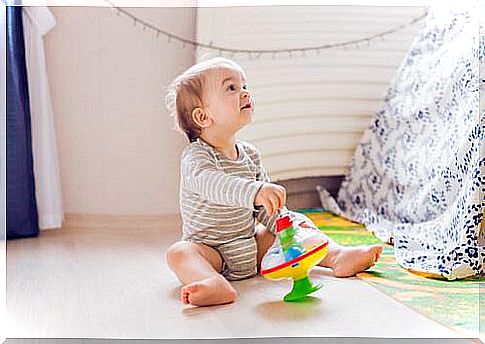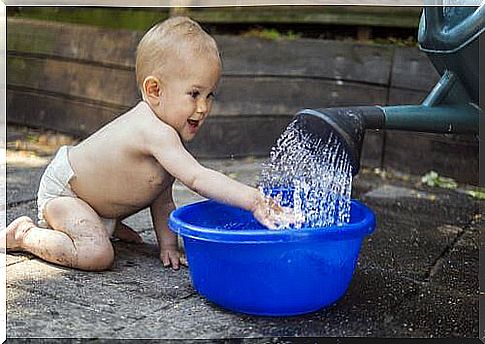Childhood Curiosity: Characteristics And Benefits – Being Parents

Curiosity in children is the first step in their learning. Some parents without realizing it may view this curiosity as untimely and negative. This can result in the hindrance of the child’s natural curiosity.
What can you do to keep your child’s curiosity awake? Check out some very useful tips below.
How to define curiosity?
Curiosity is the natural behavior of wanting to know something through research and learning. It encourages us to seek information about something and then to exchange with the environment and with others. This instinct stimulates personal development.
Children are known to be little researchers. Indeed, they are born almost curious. They come into contact by feeling, touching, looking and observing objects and people around.
They can find out what they are like or why they are there by asking questions like “why” or “where”?

Main characteristics of curiosity
As parents, it is important to protect and stimulate children’s curiosity so that their future is better. In addition, this will ensure the success of their learning. Therefore, you should never allow your child to lose:
- The interest,
- Motivation,
- Desire,
- Worry
- The occupation,
- Passion.
Curiosity prompts the brain to learn in 3 ways
Curiosity about a subject makes learning much easier. In addition, it is thus easier to retain and assimilate information. The expectation aroused by curiosity motivates the brain to better assimilate knowledge. This is because it:
- Activates and mobilizes dopamine. It is a chemical messenger or neurotransmitter to achieve goals and helps to remember information.
- It is beneficial for the hippocampus. The latter is part of the structures of the brain. It is fundamental in the formation and consolidation of short and long term memory.
- Facilitates learning through the tandem or combination of the reward system and the hippocampus. It also improves the receptivity of information, including information that is not interesting or important.
The importance of stimulating curiosity in children
It is very important to stimulate your child’s curiosity. Indeed, it is the engine that produces the interest, necessary for him to want to learn and develop his thought. Children who are not very curious can :
- Be less sociable,
- Read fewer books,
- Be more difficult to inspire and motivate,
- Show little interest in learning new things.
Benefits of curiosity in children
As soon as he begins to speak, the child begins to ask a lot of questions. The fact that he keeps his curious eyes wide open to the world brings him many benefits.
- Strengthening his relationships with others.
- Protection of his brain,
- Growth aid,
- Help to overcome anxiety.
3 bad habits for curiosity
There are 3 habits that can negatively affect the development of this quality of the child.
Fear is an enemy
Fear is the number one enemy of curiosity. If you overprotect your child, he will not only be afraid, but he will also feel incompetent.
Avoid saying sentences such as: “Leave it alone, you will damage it” or “Do not run, you will fall”. Let him be interested in things new to him.

Disapproval slows down
The child always wants to play and explore. It is not advisable to constantly tell him, “Don’t do this”, “Don’t stain yourself”, “Don’t be rude” or “Shut up”.
These phrases slow him down and inhibit behaviors that make him curious. If you use them once in a while, explain to her why you are telling her.
Absence produces insecurity
Your child will feel safe if you are around them. This security will help him to further develop his curiosity. Also, if you don’t let him play alone for a long time, you will give him the opportunity to share with you what he has recently learned.
In conclusion, to stimulate the curiosity of the child, you need to make efforts to devote time to it, besides listening to him and reinforcing his behavior in a positive way. You will thus help him to face the future challenges of his learning and to develop an excellent self-esteem.









